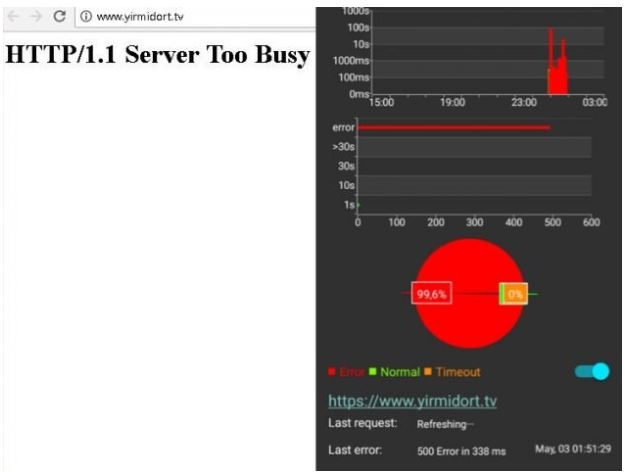Recently, the world witnessed the cybernetic clash between Turkish and Greek hackers. Information security researchers reported on Monday that Turkish hackers from the Akincilar team hijacked the ANA-MPA news agency’s website and posted a message in Turkish and English with accusations of Greece’s support for terrorists.
Followed by this, the hackers defaced the official Greek website of the Japanese automaker Suzuki by posting the same message they loaded in Monday’s hack.

The declaration of the Greek Ministry of Foreign Affairs on Thursday left a lot to be desired: “Cyber attacks are being immediately neutralized by the responsible authorities.”
Later the Anonymous Greece hackers responded to Turkish hacker attacks by paralyzing the Turkish channel Top Channel 24 TV. In a publication on the medium.com website, Anonymous Greece sent a message to the government, citizens and Turkish hackers saying: “President Erdogan kills the Kurds and his goal is to reestablish ISIS with his Afrin operation. Erdogan is lying to you and you support him, you are terrorists. ”

They also addressed the case of 8 Turkish officers who “requested asylum in Greece and, like any other civilized country, gave it to them, each country would do the same.” For the Greek soldiers, they commented that “they crossed the border by mistake and keep them in jail for 63 days.” They did not do anything; they just lost their orientation due to the fog. Think now who is more civilized. ”
Information security researchers said that Anonymous Greece claims to have pirated 12,987 Turk Telecom routers. “All its servers and routers belong to us and we can use them for any attack we wish to initiate,” the hackers said.
The Turkish hackers of Akincilar and continued to rape the Greek citizens, claiming that if they did not heed their warning, they would be thrown “into the sea”.
Information security experts say it is very likely that the two countries will continue the attacks and even intensify them in the run up to the Turkish general elections. According to Jorgos Tzogopoulos, professor of international relations at the University of Thrace, Greece, “such incidents are symptomatic of a significant deterioration in relations between Greece and Turkey.”
Now cyber weapons replace military conflicts and can harm peace and stability between nations.

Working as a cyber security solutions architect, Alisa focuses on application and network security. Before joining us she held a cyber security researcher positions within a variety of cyber security start-ups. She also experience in different industry domains like finance, healthcare and consumer products.











